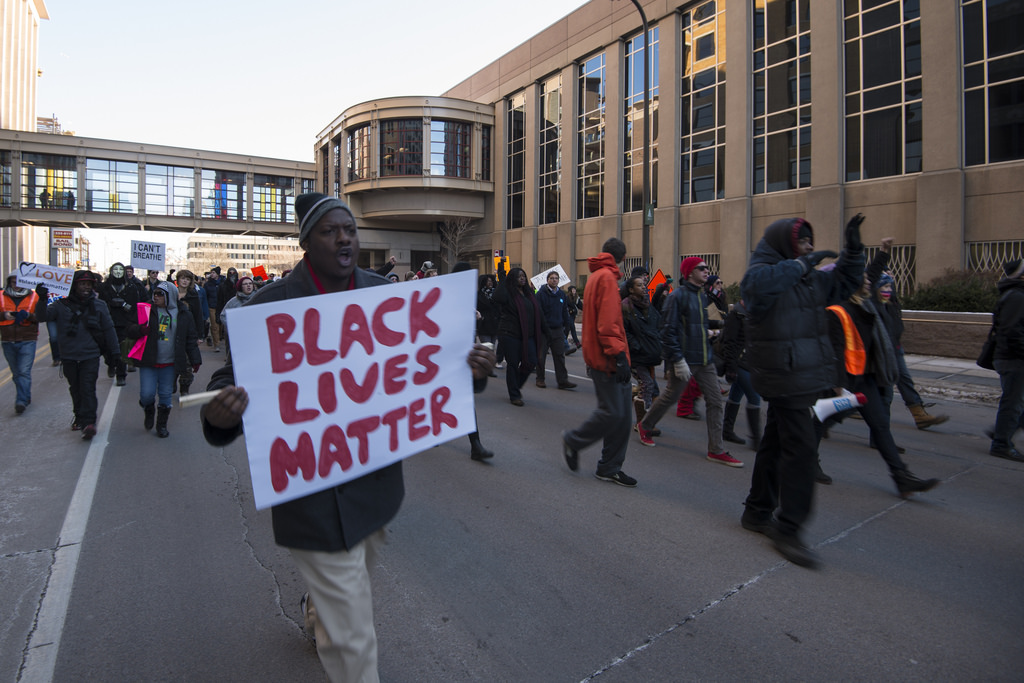The Movement for Black Lives recently released its platform for the Black Lives Matter (BLM) movement, resulting in a hardening of divisions across the Jewish community. Most controversial is its reference to Israeli “genocide” against Palestinians.
While some groups (Jewish Voice for Peace and the anti-occupation group If Not Now) have embraced the platform, others have criticized it. Boston’s Jewish Community Relations Council has been harshest in its condemnation, refusing to work with any BLM-affiliated group. Others, including the Anti-Defamation League, T’ruah and J Street, have also pushed back against the use of the word genocide. In response, the platform’s drafters have doubled down, saying, “we will not allow anyone to bully us into sanitizing our words.”
The use of the term genocide is indeed problematic, and it obscures what really is happening to Palestinians, which is bad enough. There are plenty of wrongs committed in the name of upholding the occupation that we, as Canadian Jews, should be concerned about, including home demolitions, the use of administrative detention, sleep deprivation and physical abuse in prisons, detaining minors, land appropriation, and the lack of freedom of movement.
There will still be those who bristle at the links made between American injustice and Israel’s treatment of the Palestinians. If so, we should take the issuing of the Black Lives Matter platform as a reminder that we need to work to ameliorate racial injustice in our own country.
In Canada, while we don’t imprison our population at the high rates the Americans do, we face similar racial issues. Blacks and Aboriginals are overrepresented in our prison systems and are more likely to be stopped by police than white people are, for example.
Rabbi Elizabeth Bolton of Or HaNeshama congregation in Ottawa is a leader on issues of racial injustice. Having served as a rabbi in Baltimore for 14 years before relocating to Ottawa, she became an “ally” among faith leaders on issues such as pervasive homelessness, food insecurity and lead poisoning, which, sadly, is pervasive among children in poorly maintained American rental housing.
When T’ruah, in which she’s a rabbinic chaver (member), put out a call for people to include a Black Lives Matter sign alongside their Chanukah candles 18 months ago to raise awareness of police shootings, Rabbi Bolton enthusiastically complied.
“The movement for Black Lives, and the perspective of Black Lives Matter resonate with an experience that I witnessed up close,” she says.
And what of the “genocide” term in the Black Lives Matters platform? “Like some elements of language used in highly charged political moments,” Rabbi Bolton said, “it’s a strong word, and it may or may not be the best term to use. But it does not negate for me the power of the call in this historical moment in the United States.”
Most importantly for Rabbi Bolton, “Black Lives Matter makes links between the experience of black and brown people in the United States to black and brown people in Israel/Palestine. We would do well to hearken to that analysis and see where it leads us – to create alliances, awareness and understanding here.” And as Canada’s “Truth and Reconciliation Commission has called for faith communities to be part of [the reconciliation process],” Rabbi Bolton notes that “learning about First Nations, Métis and Inuit rights is definitely on the horizon within our congregational community.”
As Canadians, we don’t have any legislative say in America or Israel. But we can take a stand – on social media, in op-eds, at Jewish gatherings and in our shuls. And if we are troubled by the use of one word or another by a set of activists to characterize some set of policies, let’s take the opportunity to learn more about what actually is going on, even if it’s painful to see.
When it comes to human suffering, Rabbi Bolton says, “There’s a Jewish mandate to respond.”
